UNU finds CONSENSUS after JURORS FAIL to reach a VERDICT
Earlier this week, the controversial trial of South Carolina Officer Michael Slager, who was charged with killing an unarmed black man, ended in a mistrial. The shooting was especially noteworthy because Slager claimed to have shot Walter L. Scott – who he had pulled over for a broken taillight – in self-defense, but a graphic video clearly shows Slager shooting Scott in the back as Scott runs away. Both men were veterans of the US Coast Guard.
A jury must reach consensus to render a verdict, and so a mistrial was declared when five jurors remained undecided after four days of deliberations. Does that mean it’s impossible for a group to find consensus in this case? To find out, researchers asked a group of 60 average citizens – over five times the size of a jury – to form a Swarm using UNU and ponder the same questions Slager’s jury faced. The group would work together as a Artificial Swarm Intelligence, a “brain of brains” that can express itself as a singular unified entity.
The members of the Swarm were shown the aforementioned video and then asked a series of questions about what they had seen, and what would happen as the case unfolded.
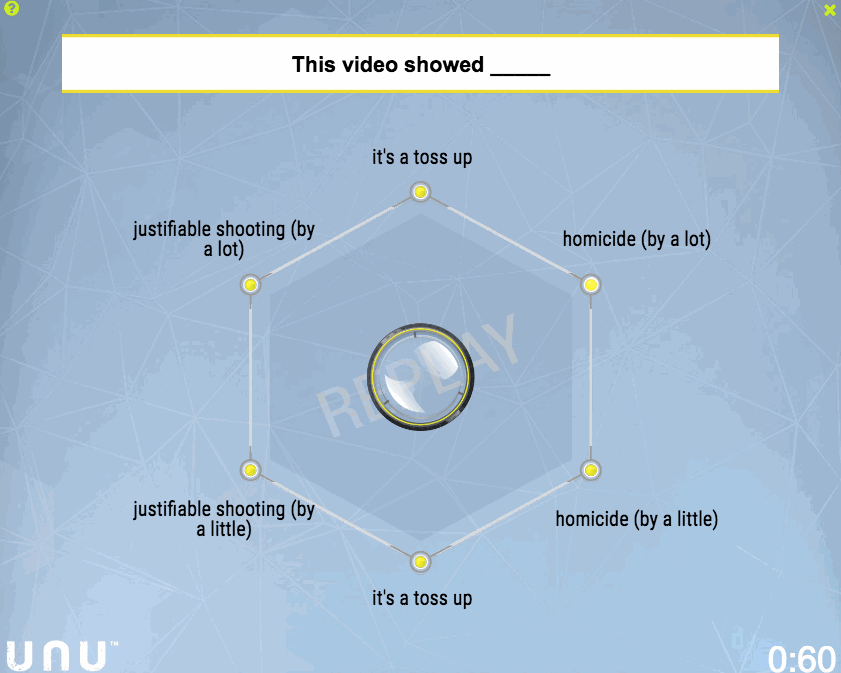
Despite the Swarm’s conviction that the video definitively showed a homicide, convicting an on-duty police officer is not a decision that anyone would take lightly. And so, the Swarm was asked to imagine themselves in the jury room, weighing the evidence against Slater against the charges against him.
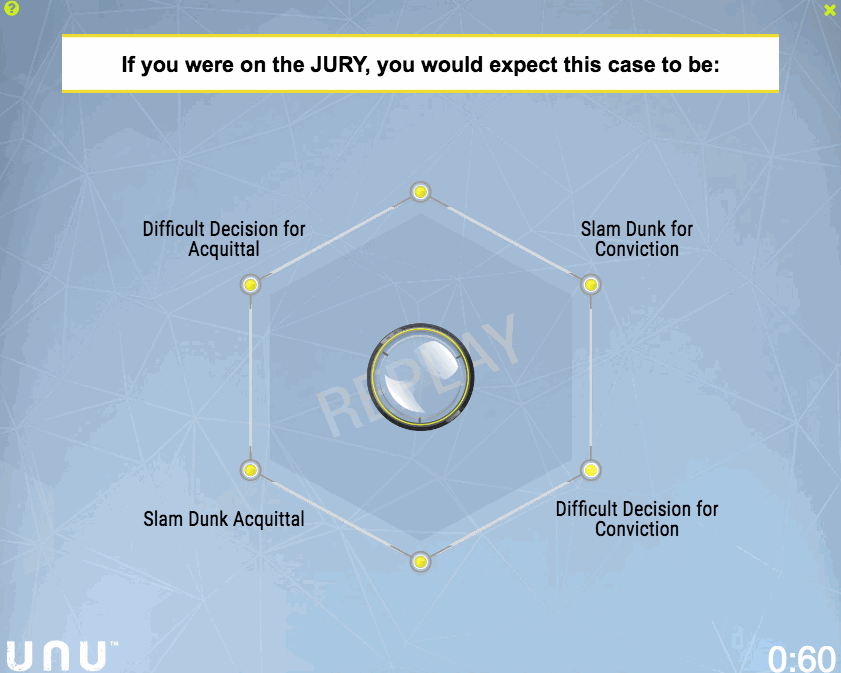
The Faction Analysis below shows how consensus can be built in a matter of seconds using Swarm Intelligence. While the jury was unable to find common ground after four days, this chart shows how people who initially showed support for all available options quickly converged on “Difficult Decision for Conviction.”
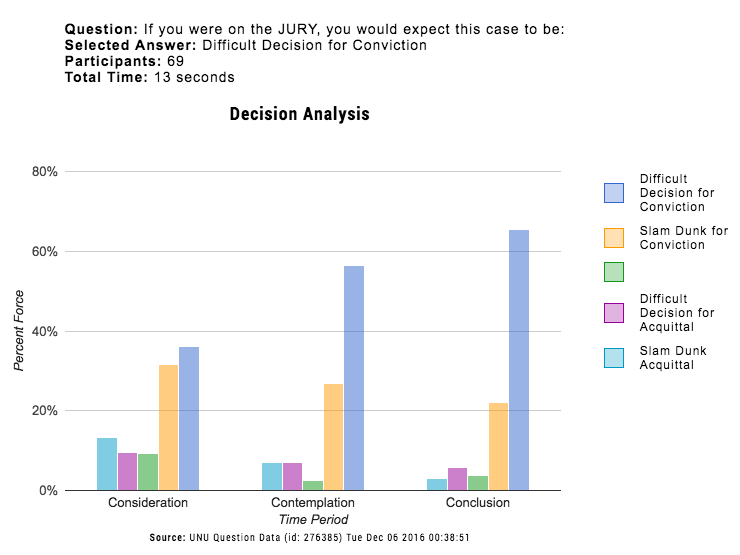
With these results in mind, the Swarm was asked to predict the likelihood that the jury in the Slager trial would convict. The Slager case is only the most recent in a series of divisive police shootings that have incited protests – both peaceful and violent – over the past year. After narrowing the percentage range down to 0-20%, the Swarm revealed its very low confidence that Slager would be convicted.
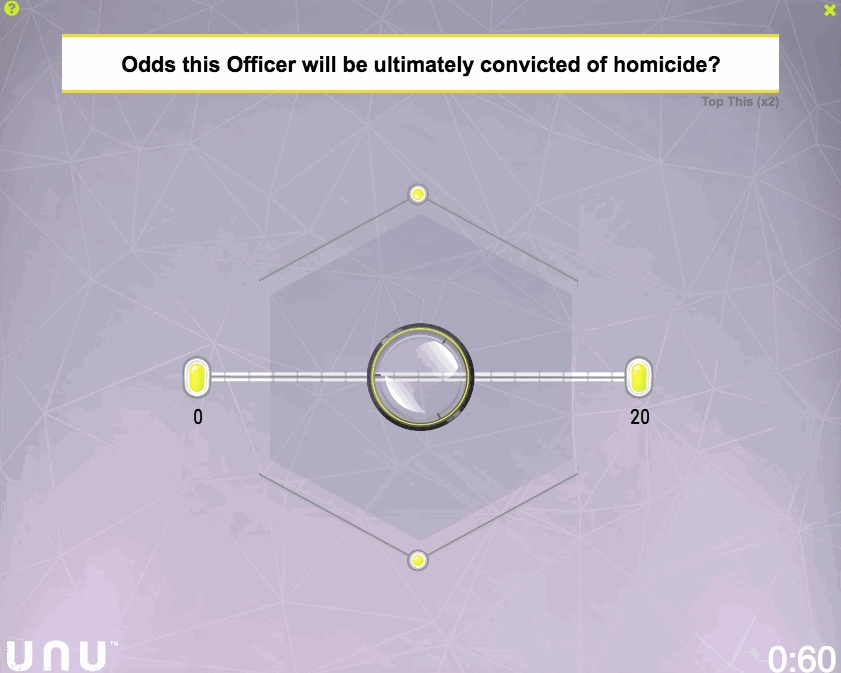
That result may not be surprising, considering the rarity with which police officers are convicted of homicides in cases like these. But, the presence of video connects the Slager case to predecessors like the Eric Garner “I can’t breathe” case, wherein a grand jury declined to indict the officer who choked Garner to death on video, much less convict.
But, what lies behind this reluctance to convict? Does the Swarm feel that the system is inherently racist, or do people simply hold police officer’s in too high a regard?
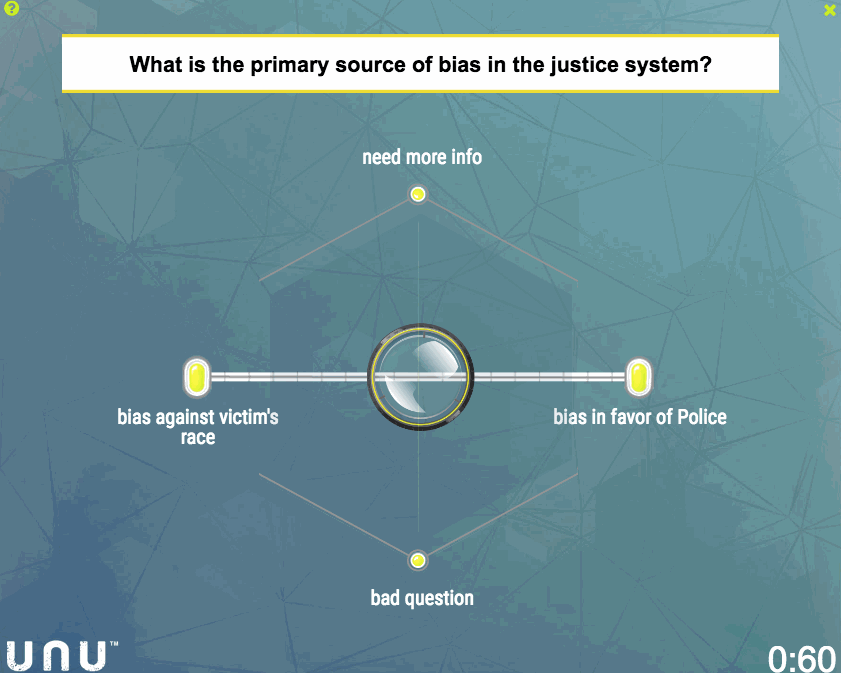
Finally, the Swarm was asked to reflect on one lingering question. In the wake of a tumultuous year between the Police and the public at large, how does this event affect how you feel about police?
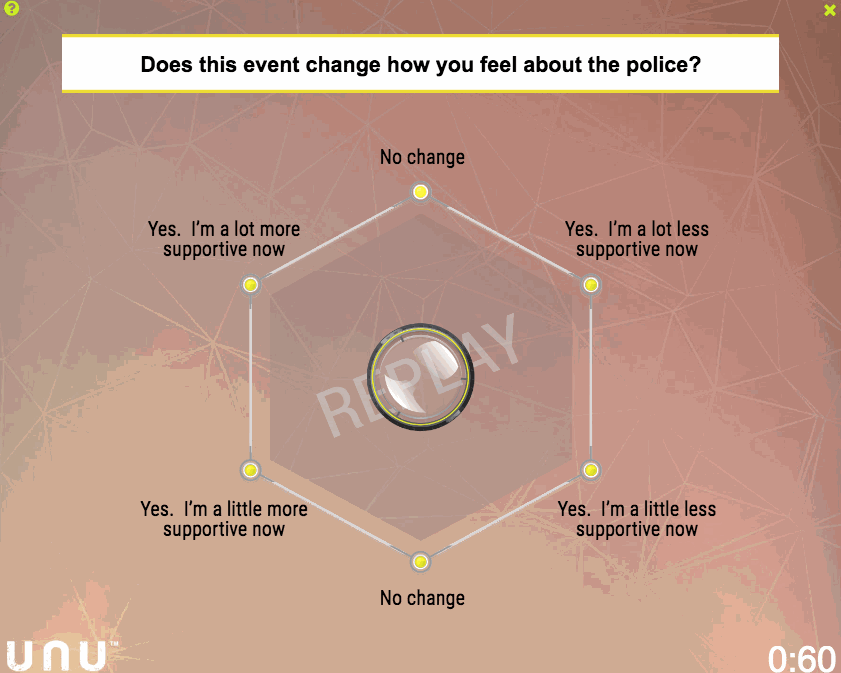
It is uncomfortable to interpret that that “no change” response indicates not an unwavering confidence in the trustworthiness of our police forces, or just the opposite, but at this moment in time, for this Swarm of 70 Americans, that seems to be the only conclusion.
Got a question for UNU, or just want to keep up to date with the Swarm’s insights? Drop us a line…


